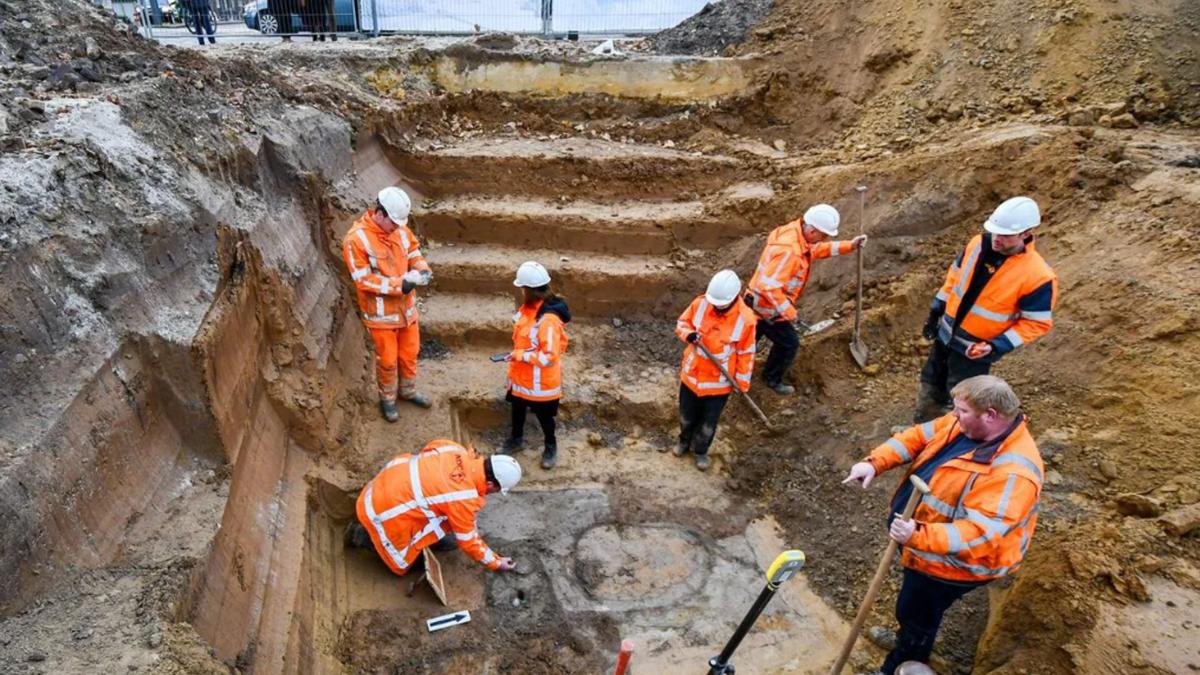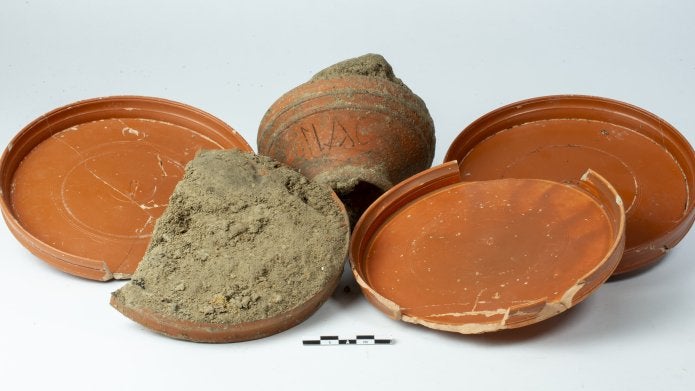Archaeologists make unprecedented discovery of Roman soldier’s remains from ‘year 0’
Experts have for the first time been able to put a name to a Roman grave dating back over 2000 years in the Netherlands
Your support helps us to tell the story
From reproductive rights to climate change to Big Tech, The Independent is on the ground when the story is developing. Whether it's investigating the financials of Elon Musk's pro-Trump PAC or producing our latest documentary, 'The A Word', which shines a light on the American women fighting for reproductive rights, we know how important it is to parse out the facts from the messaging.
At such a critical moment in US history, we need reporters on the ground. Your donation allows us to keep sending journalists to speak to both sides of the story.
The Independent is trusted by Americans across the entire political spectrum. And unlike many other quality news outlets, we choose not to lock Americans out of our reporting and analysis with paywalls. We believe quality journalism should be available to everyone, paid for by those who can afford it.
Your support makes all the difference.Archaeologists have unearthed a unique grave of a Roman soldier “from year 0” in the Netherlands, shedding light on the ancient civilisation’s presence in the region.
The 2,000-year-old grave was discovered in the municipality of Heerlen last month and belonged to a soldier nicknamed “Flaccus” who lived around 0AD, researchers said.
They deduced the name from the word “Flac” carved into a bowl found in the grave.
“Today, evidence was found of Roman habitation in the time of Emperor Augustus. A unique discovery that not only teaches us more about our past, but also shows how unique the story of Roman Heerlen is for the Netherlands,” Jordy Clemens, Heerlen’s council member for culture and heritage, said in a statement.

Analysis of the newly found gravesite led researchers to date Heerlen’s earliest settlement to the Augustan era from 0 to 20AD.
The gravesite was found during excavations at Raadhuisplein, the town square in Heerlen which sat near the historical roads Via Belgica and Via Traiana and was a key location in the middle of the Roman settlement Coriovallum, archaeologists said.
Coriovallum stood out for its elaborate Roman bathhouse, the oldest stone building in the Netherlands built around 40AD. The structure also included a restaurant and a library, suggesting it was a meeting place and served multiple functions in the Roman era.
The latest findings could provide new insights into the residential history of the city, archaeologists said. “Never before have we found a Roman grave from this period with a name.”

Researchers also found a bronze skin scraper and four plates along with the bowl in the grave. They traced the pottery to ancient Italy, confirming that Flaccus was indeed a Roman soldier.
Previous digs in the region, unearthing pottery shreds, could not prove the presence of a settlement as there was a possibility the artefacts could have been discarded during travel.
The Flaccus grave offered convincing evidence of Roman presence in the region, researchers said. “It is a unique find because it is not only the oldest Roman grave in Heerlen but also because no name was known there before,” they explained.

Join our commenting forum
Join thought-provoking conversations, follow other Independent readers and see their replies
Comments